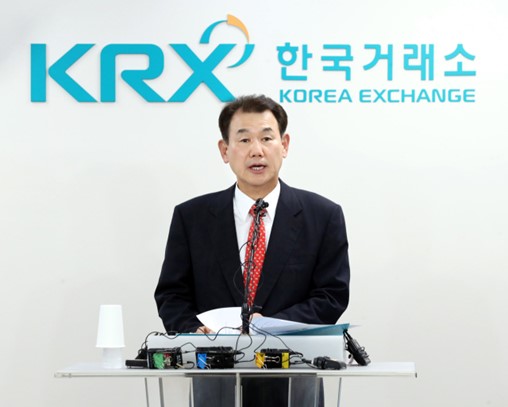Korea Exchange's Value-Up Index Faces Challenges
On September 24, Jeong Eun-bo, director of the Korea Exchange, announced the components and selection criteria of the Korea Value-Up Index. The index, aimed at enhancing corporate value, was initially released on September 30. However, nearly two months have passed since its unveiling, and the results have been underwhelming.

According to the Korea Exchange's corporate disclosure channel KIND on November 14, only 12 out of the 100 companies included in the value-up index have disclosed plans to enhance corporate value. Excluding the 7 companies that had already disclosed their plans at the time of the value-up index announcement on September 24, only 5 companies—Hyundai Glovis, Lotte Chilsung, Dreamtech, Korea Zinc, and KT&G—have made new disclosures in the past two months. In contrast, during the same period, 25 companies not included in the value-up index additionally disclosed plans to enhance corporate value.
The Korea Exchange has been making various efforts to encourage participation in value-up disclosures, such as conducting surveys asking for plans from the included companies or holding meetings with industry representatives. Despite these efforts, the value-up index has fallen by 7.37% since its initial release on September 30. The KOSPI has also declined by 8.79% during the same period, attributed to the domestic stock market's sharp decline due to hypothetical concerns about Trump's re-election.
A representative from the financial investment industry commented, "The exchange is merely encouraging companies to make value-up disclosures without any special measures. However, there is no significant stock price reaction after being included in the value-up index, and there are no clear incentives such as tax benefits, so companies are not motivated."
Yeom Seung-hwan, director at LS Securities, stated, "It is true that companies' participation in the value-up program is passive. Amid this, companies are busy formulating strategies to respond to tariff impositions following Trump's election, so value-up participation is not a priority." He added, "It is expected that some uncertainty will be removed when policies are announced around February after Trump's inauguration in January next year. Value-up disclosures may increase during the shareholders' meetings in March."
Another factor diminishing interest in the value-up program is the delayed disclosures by Samsung Electronics and SK Hynix, which hold the largest weights in the index. Experts predict that corporate value-up disclosures will become more active after the Trump risk is alleviated early next year. Clear incentives such as tax benefits are necessary to motivate companies to make value-up disclosures.
The Korea Exchange, as the sole securities exchange operator in South Korea, plays a crucial role in the country's financial markets. The introduction of the Korea Value-Up Index was intended to encourage companies to disclose plans and actions to enhance their corporate value, improving corporate governance, shareholder returns, and overall corporate value. However, the lack of significant stock price reactions and clear incentives has led to low participation rates.
As the situation develops, the Korea Exchange will need to consider additional measures to incentivize companies to participate in the value-up program. The coming months will be crucial in determining whether the Korea Value-Up Index can achieve its intended goals and enhance corporate value in South Korea.






Comments